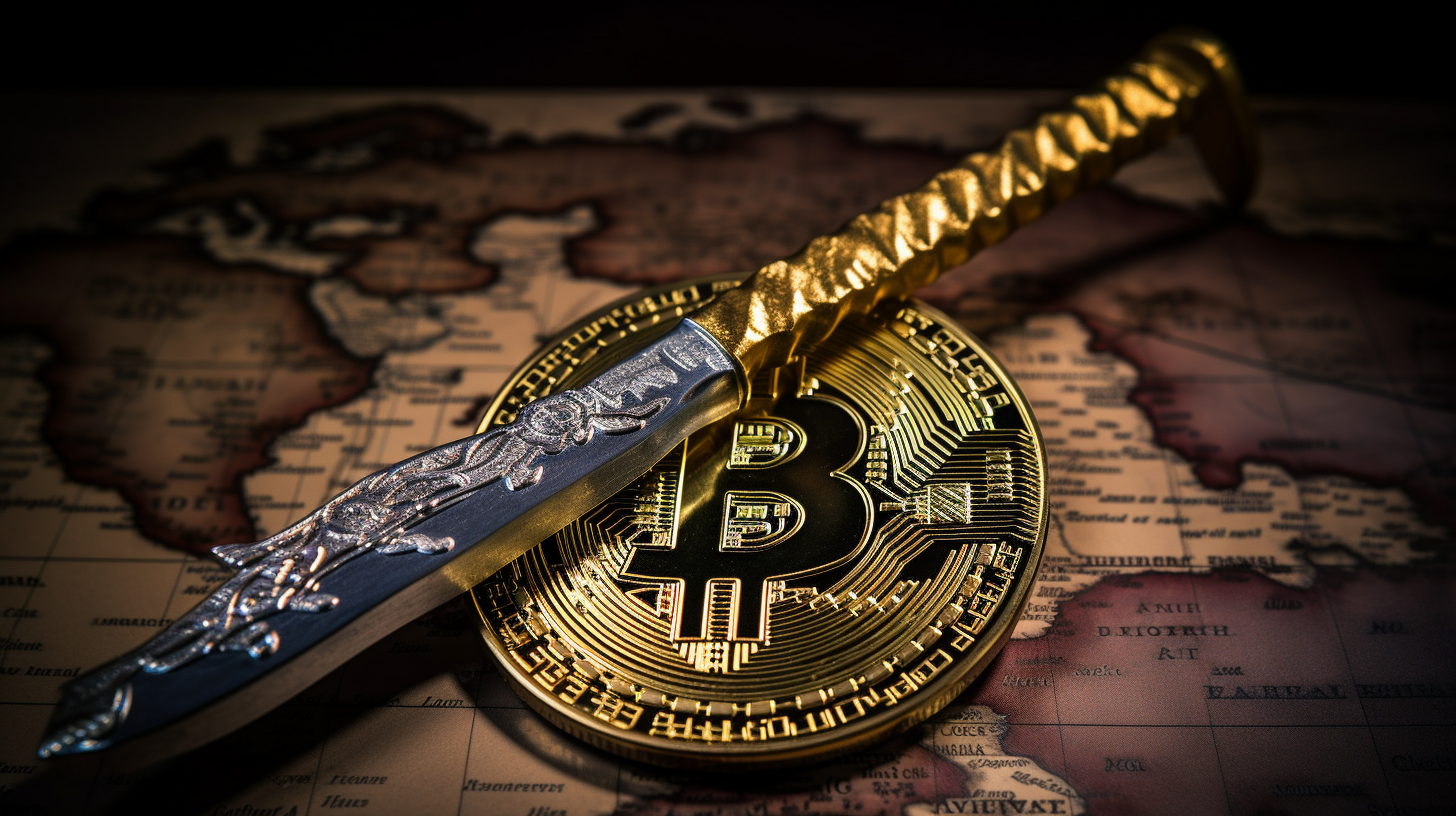In an era where the clink of coins and rustle of paper money have become sounds of a bygone age, the hum of servers and cryptography has taken over the narrative of modern warfare. As cryptocurrencies redefine our concept of value, the emerging question on many minds is: Is the blockchain mightier than the sword?
The digitalization of everything from communications to currencies has inevitably extended to the battlegrounds. Cryptocurrencies, free from the chains of centralized financial systems, have shown an unparalleled ability to move value across borders with impunity. But what does this mean for global conflicts? Let’s delve into the intricacies of this question.
Bitcoin, once the darling of the digital revolution, has matured beyond just a store of value. In conflict zones, it’s become a lifeline for those trapped in economic blackouts. When traditional systems fail under the strain of sanctions or government control, cryptocurrencies emerge as beacons of hope. The privacy and discretion offered by the likes of Monero and Zcash have also been critical for activists and dissidents, providing a layer of protection that can mean the difference between being heard and being silenced.
However, with these advantages come formidable challenges. The question of regulation is a sword of Damocles hanging over the world of crypto. The decentralized nature of blockchain technology is a double-edged blade; it can fund both relief efforts and insurgencies with the same efficiency. The notorious WannaCry ransomware attack, which demanded Bitcoin for the liberation of seized data, demonstrated the potential of cryptocurrencies to fuel cyber conflicts on a global scale.
The arrival of quantum computing paints an even more complex picture. The previous article, ‘Quantum Computing vs Crypto: Preparing for the Next Digital Battlefield,’ highlighted how this technological leap could unravel the security mechanisms of current blockchain technologies. Still, the crypto society marches on, with continuous innovation striving to stay a stride ahead of such quantum threats.
There’s also the remarkable phenomenon of ‘crypto-cities’ where entire economies and governance systems operate on blockchain technologies. These ‘smart cities’ are not just exercises in efficiency; they symbolize potential pseudo-state actors in the global arena, challenging the status quo with their technological sovereignty.
Furthermore, the use of blockchain tech in documenting human rights abuses cannot be understated. In conflict zones, immutable blockchain ledgers have been instrumental in recording evidence of violations, shielding it from alteration, and ensuring that truth persists in the face of propaganda and censorship.
When it comes to international trade agreements, Ethereum and similar platforms offer not just transparency but automation through smart contracts. These contracts execute themselves once conditions are met, stipulating clear terms without the traditional bureaucratic tangle—a vital tool in conflict resolution and international negotiations.
Ultimately, the impact of cryptocurrencies on global conflicts is profound and ever-evolving. Like the printing press or the steam engine, crypto and blockchain are more than mere gadgets; they are the cogs of a significant paradigm shift in how society functions in times of peace and conflict. They distribute power from the central authorities to the masses, change the face of fundraising, and make both information and value harder to control or destroy.
As the blockchain carves a path through the digital and physical worlds alike, the question remains—not whether crypto is mightier than the sword, but whether society can weld it with wisdom and foresight to bring about peace rather than perpetuate war. The responsibility lies not within the technology itself, but in the hands of those who control it. Much like the sword, crypto can protect or destroy; the choice is ours.
